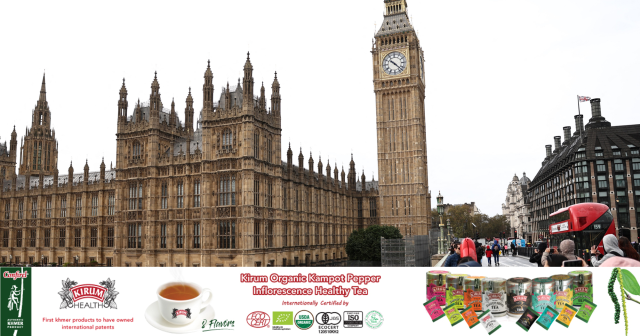Britain's Big Ben Marks 100 Years of New Year 'Bongs'

- By Agence France-Presse (AFP)
- December 31, 2023 7:00 PM
London, United Kingdom - London's Big Ben on Sunday marks the 100th anniversary of its "bongs" to ring in the New Year being broadcast live across the world.
Ever since New Year's Eve 1923 when BBC engineer A.G. Dryland clambered onto a roof opposite the British parliament to record the strikes, live transmission has become an annual tradition.
The unmistakable sound of the "nation's timepiece" has long occupied a special place in national life.
The bongs are heard twice daily -- at 6pm and midnight and three times on Sunday -- on BBC radio, and at the start of the nightly News at Ten on commercial channel ITV.
Such is their importance that even during the recently-ended five-year restoration programme when they were largely silenced, important exceptions were made.
As well as New Year, Big Ben also continued to mark Armistice Day and Remembrance Sunday when the nation remembers its war dead.
Big Ben also rang out to mark Britain's departure from the European Union in 2021 and the state funeral of Queen Elizabeth II in 2022
After a week of testing, normal service finally resumed last November.
While the rest of London is enjoying New Year's Eve, clock mechanic Andrew Strangeway will be at the top of the 96-metre (315-foot) Elizabeth Tower.
The tower houses the clock and its five bells, including the largest one from which Big Ben takes its nickname.
- 'Fractions of a second' -
Along with the two other members of the in-house timekeeping team, the 37-year-old will be making last minute checks to make sure the clock will be "within fractions of a second of being correct."
Although the chances of a mishap on the big night are tiny, Strangeway said the clock did suffer a disaster during the 1970s when it stopped due to metal fatigue.
"I think the chances of anything going seriously wrong are small. Our main worry on things like New Year is -- is it going to go off and is it going to be on time," he said.
Completed in 1859, the structure was known as the Clock Tower before being renamed the Elizabeth Tower in 2012 to honour the late queen's Diamond Jubilee.
In the years before the renovation, parliament's timekeepers would benchmark the Great Clock's time against the telephone speaking clock.
Now, it is calibrated by GPS via Britain's National Physical Laboratory.
But the method to adjust the clock's timing mechanism remains old-fashioned: old pennies are added or removed from weights attached to two giant coiled springs, to make or lose a second.
"It's a fantastic job," Strangeway told AFP, adding that even when he was out and about in London he would frequently look for Big Ben and think "yes it's still running".
He said he was very excited that he would be "right next to the bells... at that moment when everyone is looking at that clock for the start of the New Year".
har/gv
© Agence France-Presse















